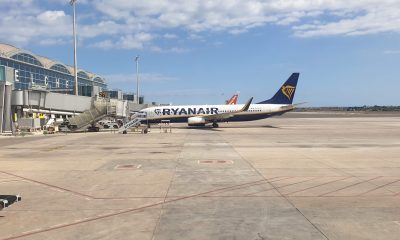Costa Blanca
Subsidised flights to the Balearic and Canary Islands from Alicante Airport in jeopardy
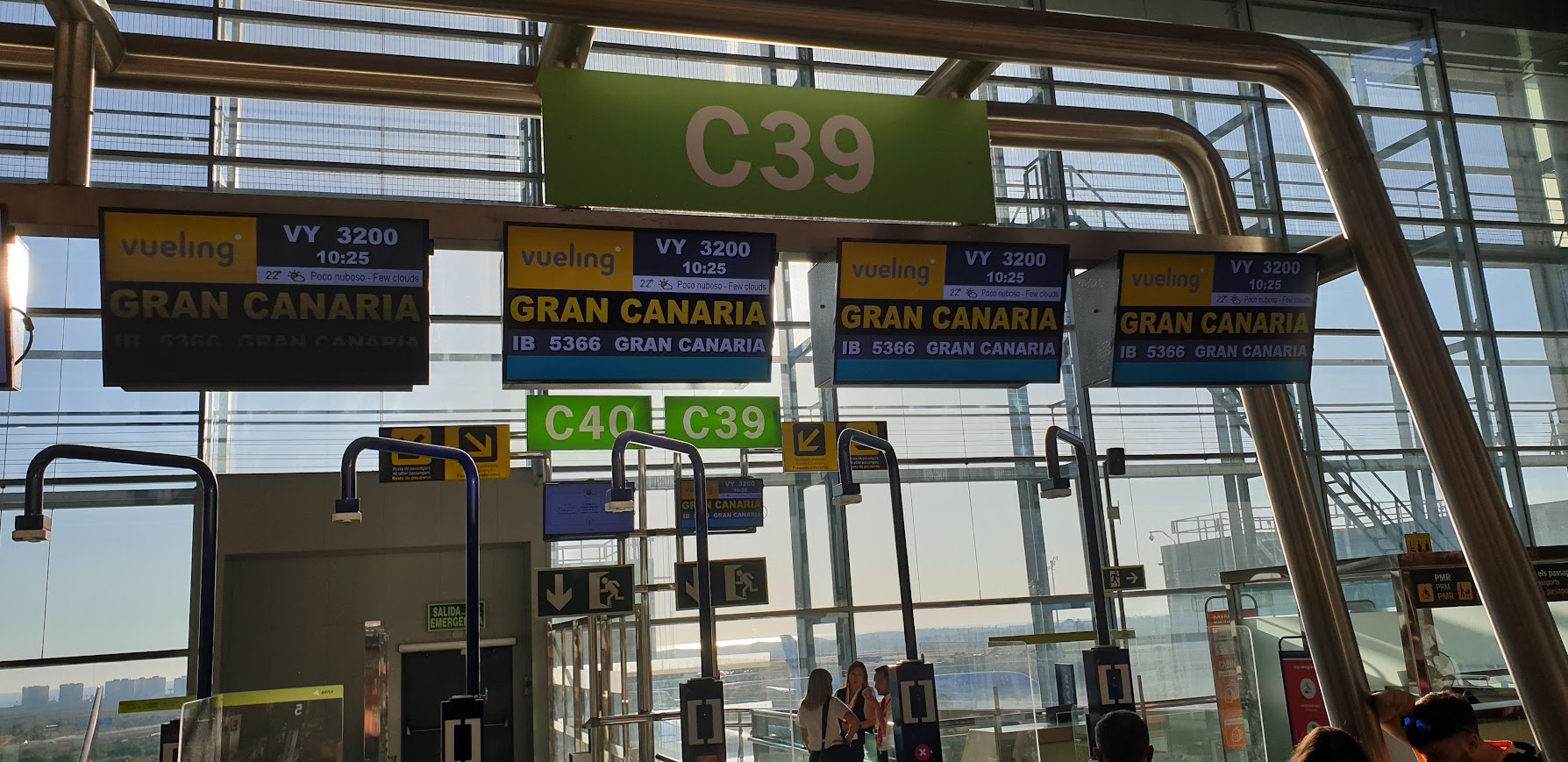
The Balearic and Canary Islands are at a substantial risk of losing their air connections. The airlines have issued a warning, claiming that the central government’s “non-payments” for subsidised tickets for island residents are “suffocating” the companies. The companies have been obligated to advance these subsidies, which comprise 75% of the ticket price.
The Association of Airlines (ALA) has denounced this situation, asserting that certain companies that operate flights between the islands and the peninsula “could be compelled to cease operations on some of these routes or reduce frequencies as a result of the unsustainable situation and economic suffocation caused by the Government’s non-payment of approximately 810 million euros by January 2025.”
In Spain, the demand for these connections has increased by 9.6% since 2023. This circumstance is not unfamiliar to Alicante-Elche Airport. From the El Altet terminal, numerous airlines operate routes between the Balearic Islands and Alicante and the Canary Islands. Aena data indicates that traffic with these islands comprises 34% of the national total recorded in 2024.
The situation is concerning, as Palma de Mallorca is the second busiest domestic route at the Alicante terminal, with 497,547 passengers in 2024, representing an 8.5% increase from the previous year. The sixth and seventh busiest routes at the airport are Ibiza, with 176,592 passengers (26% more), and Tenerife, with 155,000 passengers (19.9% more). With 57,460 passengers in 2024 and a 39% increase, Gran Canaria is the eleventh busiest domestic connection.
Vueling, Ryanair, Iberojet, and Air Nostrum operate flights to Ibiza, while Air Europa, Iberojet, Ryanair, Enter Air, and Vueling operate flights to Palma de Mallorca. Ryanair, Vueling, and Enter Air provide connections between Tenerife and the Canary Islands, while Vueling serves Alicante and Gran Canaria.
The situation has been further complicated by the postponement in the General State Budget (GSE). The 2023 GSE was allocated 560.81 million euros by the government, an amount that ALA maintains has been “significantly exceeded” by demand that has exceeded expectations. ” They assert that the Contingency Fund has contributed an additional 170 million euros to this sum in order to finance credit modifications; however, they maintain that it still falls short.
ALA has expressed apprehension that the new extension will result in an increase in this debt to €1.5 billion. Javier Gándara, the president of the association, maintained that this allocation is “inadequately funded” and that it has been extended until 2023, rendering it “completely inadequate to cover the subsidies of up to 75% on air service fares.”
According to Gándara, the circumstance “is compromising the financial sustainability of these airlines to the point that, if this continues, it could make the operation of some of these routes unviable, seriously affecting the connectivity of the Canary and Balearic Islands.” Consequently, the president of ALA is urging the government to promptly pay the companies that operate these routes.
Simultaneously, Gándara emphasises the necessity of “correcting this situation in the future with sufficiently funded and more realistic budget allocations.” ALA anticipates additional delays in the upcoming year, during which the allocation for subsidies for residents will remain at €60.8 million. The anticipated expenditure for this year is €1.2 billion, and the outstanding €810 million must be added.
Airlines are merely intermediaries who are accountable for the program’s execution. They act as collaborating entities of the Administration in accordance with the established regulations, applying the legally established subsidy percentage at the time of ticket purchase and subsequently paying the Administration, in this case the General Directorate of Civil Aviation (DGAC), the remaining amount after the passenger has completed the trip subject to the corresponding discount.
The DGAC is accountable for the management of the budgetary appropriations that have been allocated to cover the subsidy and for the payment of the subsidy amounts to the airlines. In summary, the airlines apply the subsidy to the resident’s ticket, which the government must subsequently settle through the DGAC, using an expandable appropriation from the General Budget. The Ministry of Finance reserves the right to increase the allocated quantity in the event that it is surpassed.
Discover more from Costa Blanca Daily
Subscribe to get the latest posts sent to your email.
Costa Blanca
Alicante to Seville daily with new Ryanair schedule
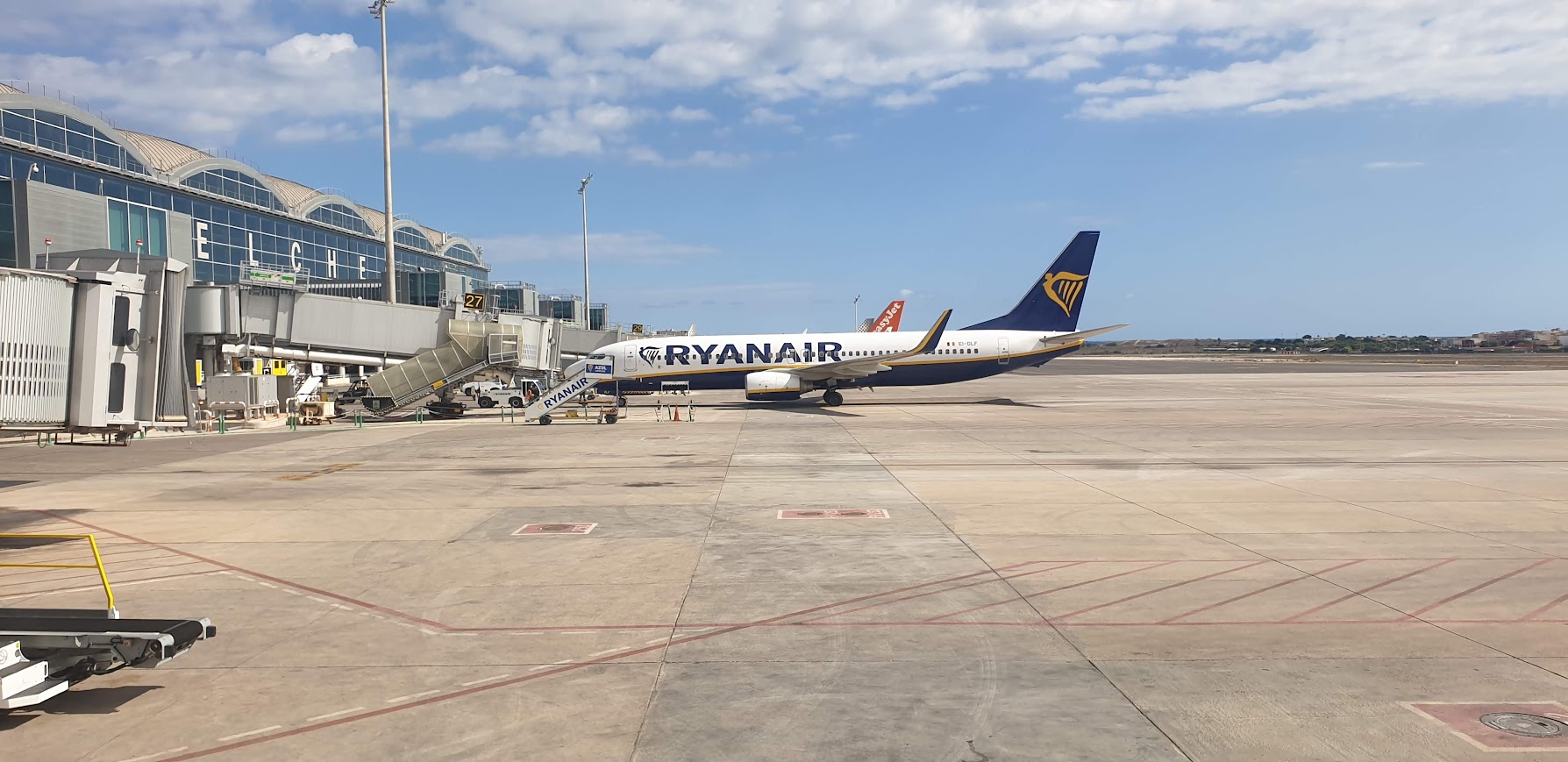
During the summer of 2025, Ryanair will run daily flights between Alicante and Seville.
The company plans to connect the two cities on a daily basis from today, March 27th, until October 25th. This year, the connection is strengthened with a flight every weekday, in contrast to the 2024 summer season when the route ran six days a week (with double frequency on Sundays and no flights on Wednesdays). Additionally, Ryanair plans to launch eight weekly flights in April 2025, with the addition of a second daily frequency on Saturdays.
Reaching 125,581 passengers in 2024, the link with Seville, the capital of Andalusia and Spain’s fourth most populous city, saw stratospheric growth. Compared to 2023, when the route carried 58,361 people between the two cities, this number marked a 115% increase.
A potential increase of frequency on the Alicante-Elche and Seville route has not been ruled out, and Ryanair will soon release its 2025–2026 winter schedule. Given the ongoing increase in demand on this route, the Irish airline may be planning to improve connection, as it ran five weekly flights during the previous winter season.
Discover more from Costa Blanca Daily
Subscribe to get the latest posts sent to your email.
Costa Blanca
Benidorm could start fining illegal tourist properties by Easter
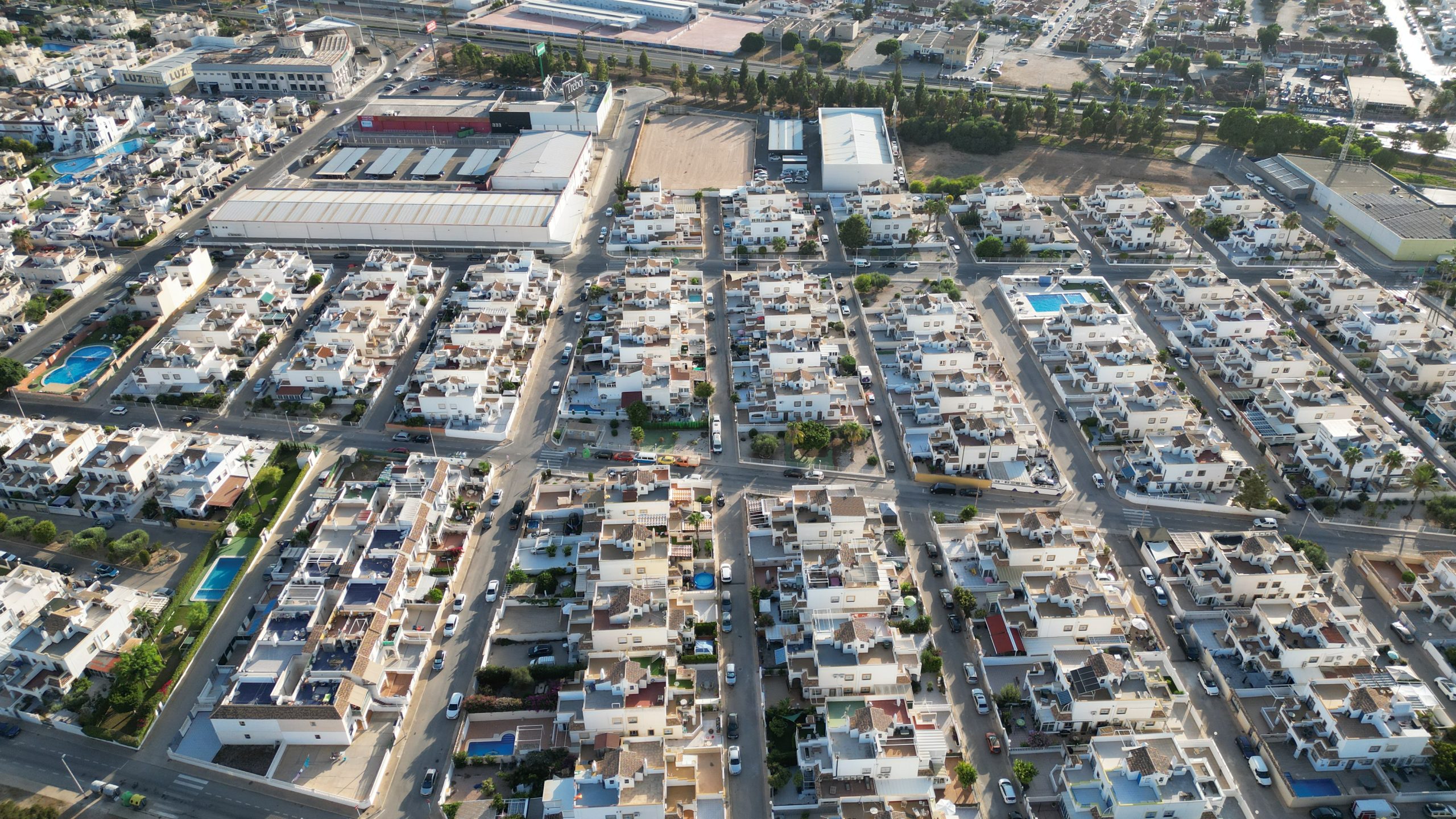
Since the formal transfer of authority is anticipated to take place next week, Benidorm may start immediately fining unlawful tourist accommodations as early as Easter. Marián Cano, the Regional Minister of Innovation, Industry, Commerce, and Tourism, made this announcement as an indication of the advancements made in working with local councils to keep an eye on the tourism industry’s underground economy. The city councils of Alicante, Castellón, Elche, Torrevieja, and Benicarló are among the other municipalities that have stated their intention to take on this responsibility. This progress has already been formalised in Valencia, where the transfer of powers has been completed and all the procedures are prepared for approval next week in Benidorm.
In her response to a parliamentary question, the Nuciera councillor discussed the issue in Les Corts and stressed that the new tourism inspection plan “is not a continuation of the previous one, but rather an improvement that introduces more effective measures, strengthens institutional collaboration, and better responds to the needs of the sector.” She stressed cooperation with local governments in this regard in order to provide “more effective inspections and a swift response to irregularities.”
Discover more from Costa Blanca Daily
Subscribe to get the latest posts sent to your email.
Costa Blanca
Twenty kilos of cocaine found in a van near Alicante, leading to ten arrests

After discovering a 20-kilogram cocaine hoard in Alicante concealed within an industrial machine being carried in a van, the National Police have disbanded a drug trafficking organisation that was active in the region. A firearm, over three kilogrammes of cocaine, almost 100 marijuana plants, and 50 bottles made with valves and chemicals used to make the powerful drug “BHO” (an acronym for “butane hash oil”), a concentrated cannabis oil that achieves 80% THC, the psychoactive ingredient in marijuana, were all seized as part of the operation, which also led to the arrest of ten individuals in Alicante, San Vicente, and Torrellano.
If sold by the gramme, the 20 kilogrammes of cocaine would have brought in €1.2 million, and if sold by the kilogramme, €610,000. The black market value of the 3.2 kg of hashish that was found at one of the residences is €22,054 per gramme.
The Alicante Judicial Police’s UDYCO (Underground Drug Enforcement Unit) Narcotics Unit has started looking into a Torrellano resident who might be involved in drug trafficking with his son, who resides at a different Alicante address.
In order to identify everyone in the gang, the agents conducted a number of surveillance operations. They discovered that the group travelled and transported the drugs to other provinces using a number of cars, some of which were rented.
To escape suspicion, the suspects also switched cars, but the National Police were still able to verify their suspicions. In one of the monitored residences, they found a steady stream of individuals, some with criminal histories and others who came and went quickly after purchasing their medication for their own use.
Police saw a man riding a motorbike quickly out of one of the homes during one of the surveillance missions. When he was stopped and searched, it was discovered that he had 2,500 euros in cash on him. The inmates shared a van with another suspect, which was used to transport electrical equipment that might be utilised in marijuana growth facilities and to transport drugs to other provinces.
The National Police stopped the vehicle in the Alicante neighbourhood of El Moralet in early March, resulting in the seizure of the 20 kilogrammes of cocaine. An industrial heel-polishing equipment contained the medicines. A revolver with ammunition and rifle cartridges, 40 grammes of cocaine that was ready for distribution, 73 hashish acorns, over three kilogrammes of hashish tablets, some speed, and 81 marijuana plants were among the items found during searches conducted at homes in Alicante, Torrellano, and San Vicente del Raspeig after this seizure.
Additionally, 50 bottles of chopped marijuana that had been prepared with entry holes so that this cannabis concentrate could be made using gas and 54 grammes of BHO were confiscated by the police. A potent medication containing up to 80% THC is produced by this procedure.
After appearing in court, three of the arrested were placed in jail, while the others were freed on bond. Six of the ten inmates already had criminal histories, and the father, who has been the subject of an investigation since the beginning, together with his son, is one of those involved.
Experts from the Alicante Provincial Scientific Police Brigade will examine the revolver that was found after one of the searches because it does not have a serial number.
Discover more from Costa Blanca Daily
Subscribe to get the latest posts sent to your email.
-

 Costa Blanca2 weeks ago
Costa Blanca2 weeks agoMore than 1.5 million bottle caps are donated by Benidorm to the “Caps for a New Life” charity initiative
-
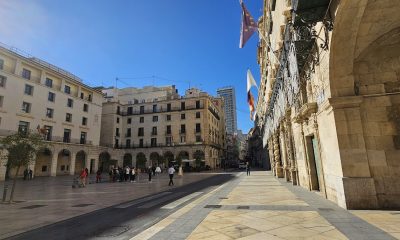
 Costa Blanca2 weeks ago
Costa Blanca2 weeks agoIn Benidorm, a repeat abuser breaks into his ex-‘s home and assaults her
-

 Costa Blanca2 weeks ago
Costa Blanca2 weeks agoThe importance of bees is a topic that children in Alicante are being taught
-

 Costa Blanca2 weeks ago
Costa Blanca2 weeks agoIn 2024, the Emergency Department received over 250,000 calls from Alicante
-

 Costa Blanca1 week ago
Costa Blanca1 week agoElche is seeking tender for an additional 22,000 plants, shrubs, and flowers from 150 different species
-
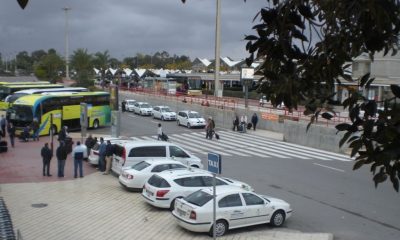
 Costa Blanca2 weeks ago
Costa Blanca2 weeks agoFormer leader of ETA, will appear in court today charged with planting a bomb Alicante-Elche airport
-

 News2 weeks ago
News2 weeks agoIn 2025, the pension in Alicante will be increased
-

 Costa Blanca1 week ago
Costa Blanca1 week ago€85,000 lottery winner in Torrevieja

